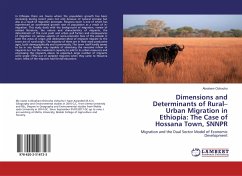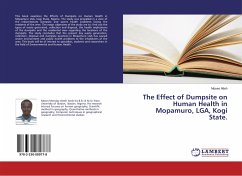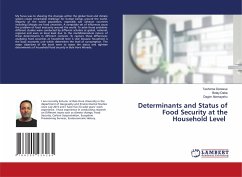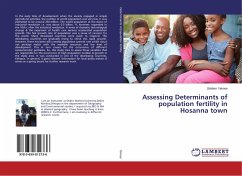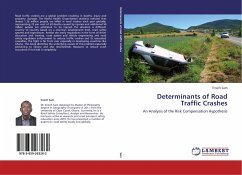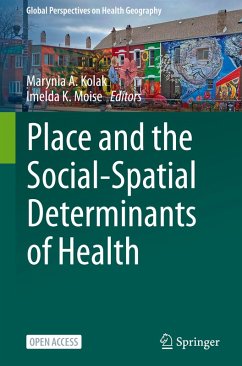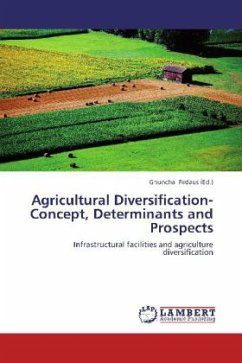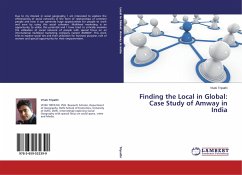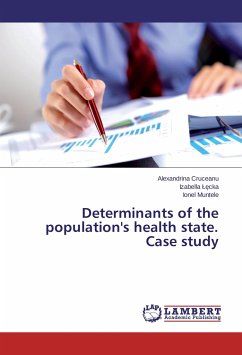
Determinants of the population's health state. Case study
Versandkostenfrei!
Versandfertig in 6-10 Tagen
46,99 €
inkl. MwSt.

PAYBACK Punkte
23 °P sammeln!
When we have health problems, we become "consumers" of resources (financial, material, affective and so on), and personal autonomy is losing ground to dependence on others (family, friends, doctors, health system, society in general), so that, our problem can become a problem of the society which, in spite of its good intentions may not be able to provide the necessary support"here and now". In order to prevent, eliminate or at least improve the causes that gave rise to the various health problems, we first need to know them. Heredity, environment and education are factors often invoked in exp...
When we have health problems, we become "consumers" of resources (financial, material, affective and so on), and personal autonomy is losing ground to dependence on others (family, friends, doctors, health system, society in general), so that, our problem can become a problem of the society which, in spite of its good intentions may not be able to provide the necessary support"here and now". In order to prevent, eliminate or at least improve the causes that gave rise to the various health problems, we first need to know them. Heredity, environment and education are factors often invoked in explaining the processes and phenomena underlying at our wellbeing, indisputable thing in fact, but which of them have a higher share in the evolution of our health state, and how do they do it ? If the hydrologic and climateric factors have been conferred, in time, a great significance in explaining the epidemiology of different medical affections, the attention focuses nowadays more and more on the human factors, more precisely on the lifestyle specific to an area or another.



